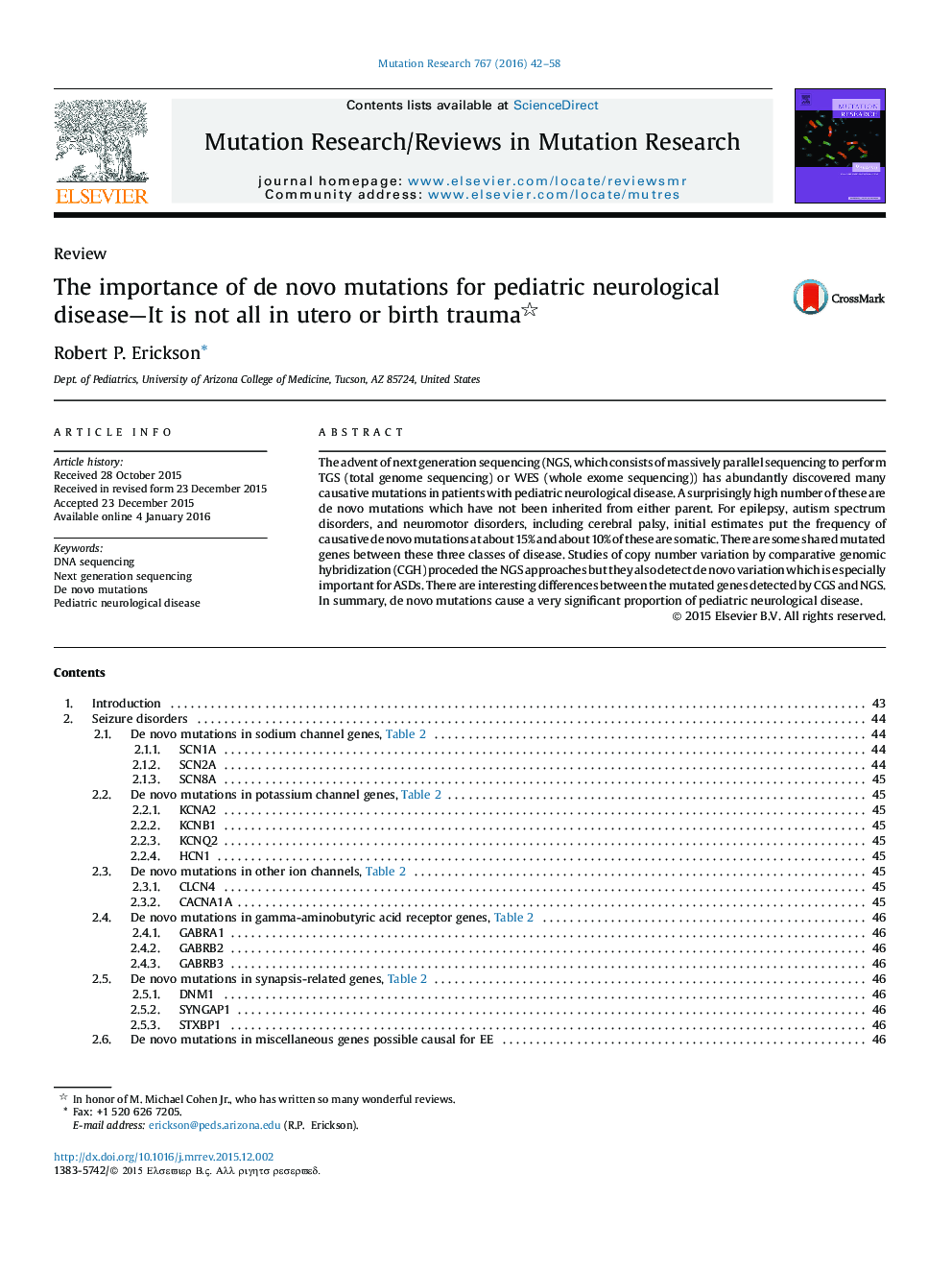| Article ID | Journal | Published Year | Pages | File Type |
|---|---|---|---|---|
| 2149622 | Mutation Research/Reviews in Mutation Research | 2016 | 17 Pages |
The advent of next generation sequencing (NGS, which consists of massively parallel sequencing to perform TGS (total genome sequencing) or WES (whole exome sequencing)) has abundantly discovered many causative mutations in patients with pediatric neurological disease. A surprisingly high number of these are de novo mutations which have not been inherited from either parent. For epilepsy, autism spectrum disorders, and neuromotor disorders, including cerebral palsy, initial estimates put the frequency of causative de novo mutations at about 15% and about 10% of these are somatic. There are some shared mutated genes between these three classes of disease. Studies of copy number variation by comparative genomic hybridization (CGH) proceded the NGS approaches but they also detect de novo variation which is especially important for ASDs. There are interesting differences between the mutated genes detected by CGS and NGS. In summary, de novo mutations cause a very significant proportion of pediatric neurological disease.
